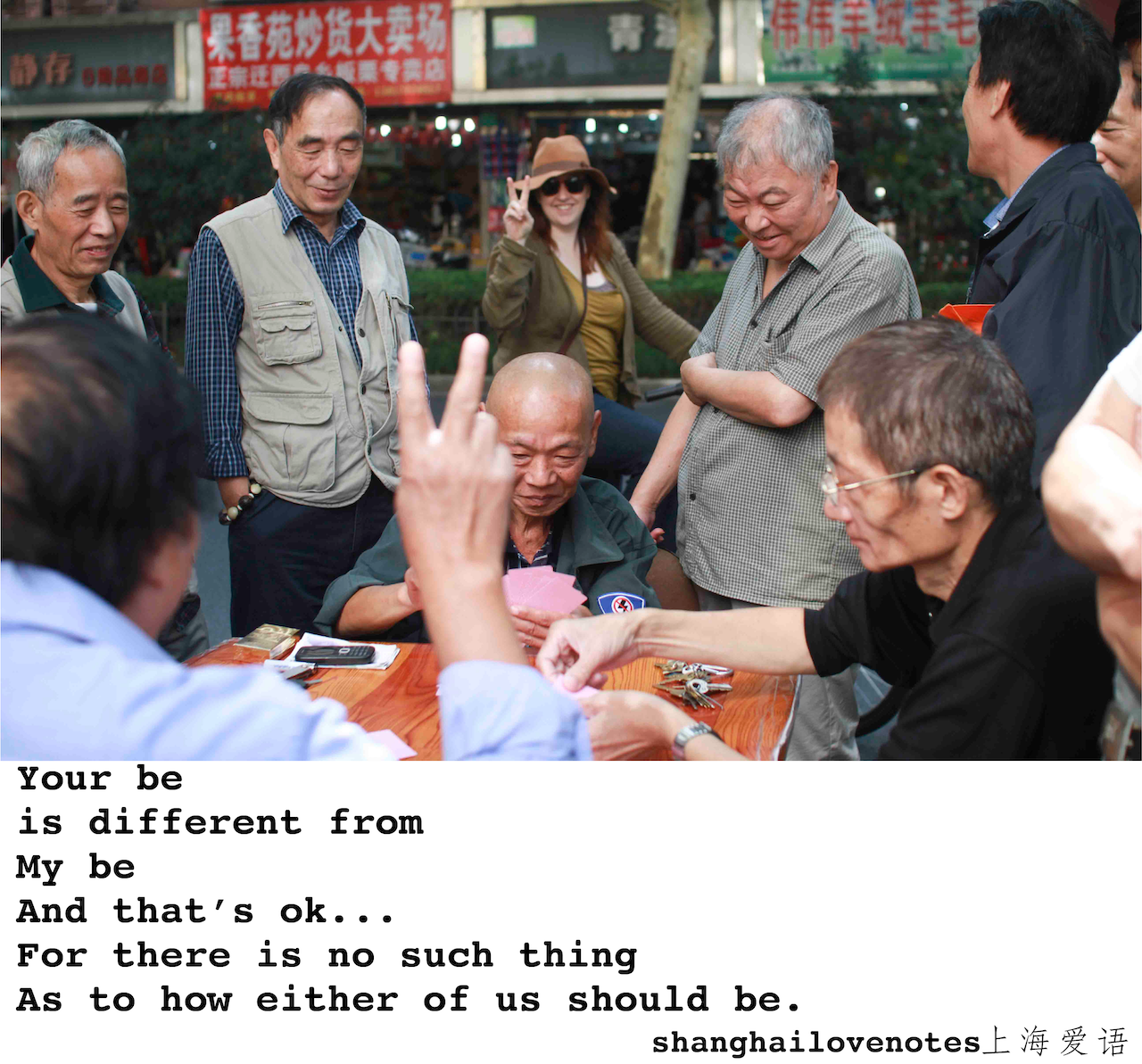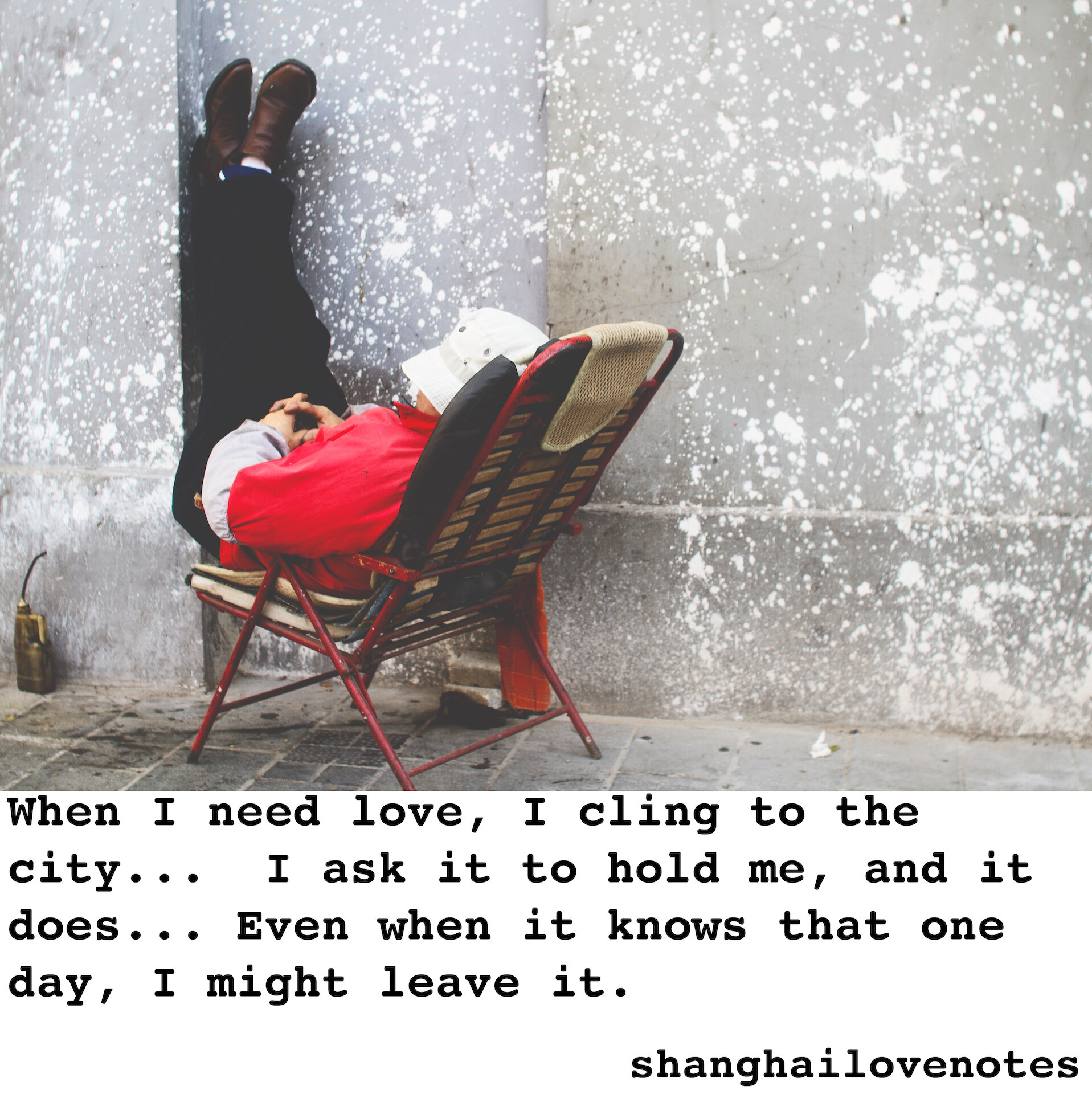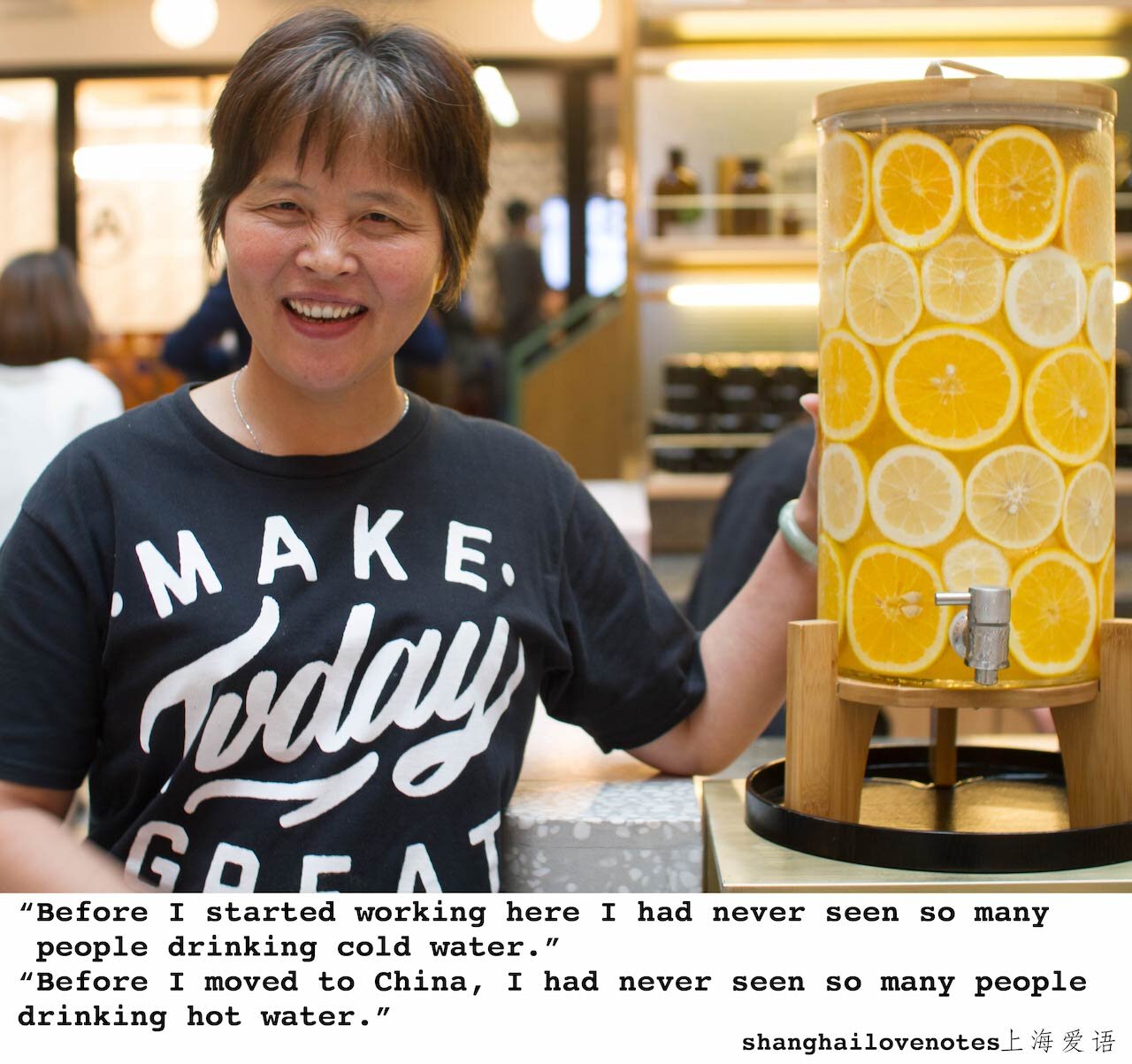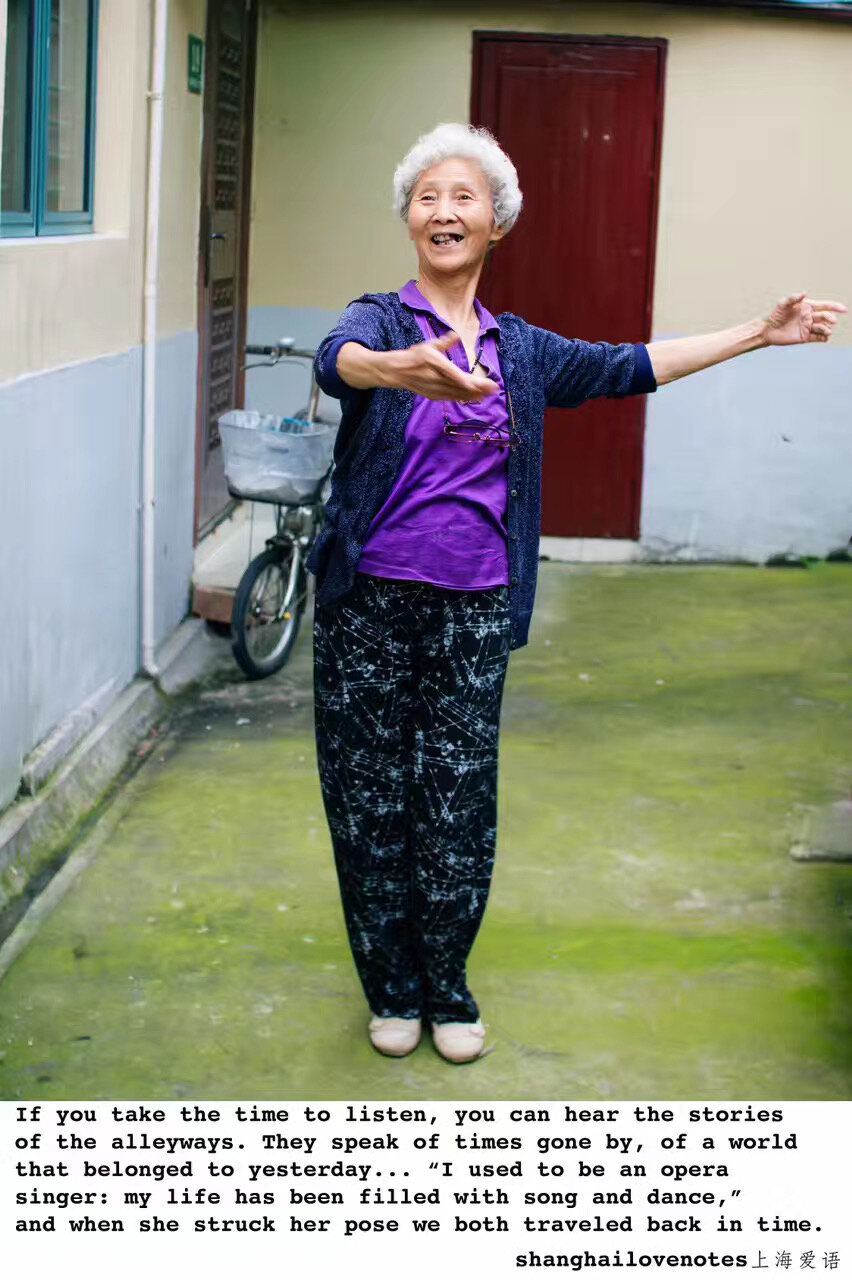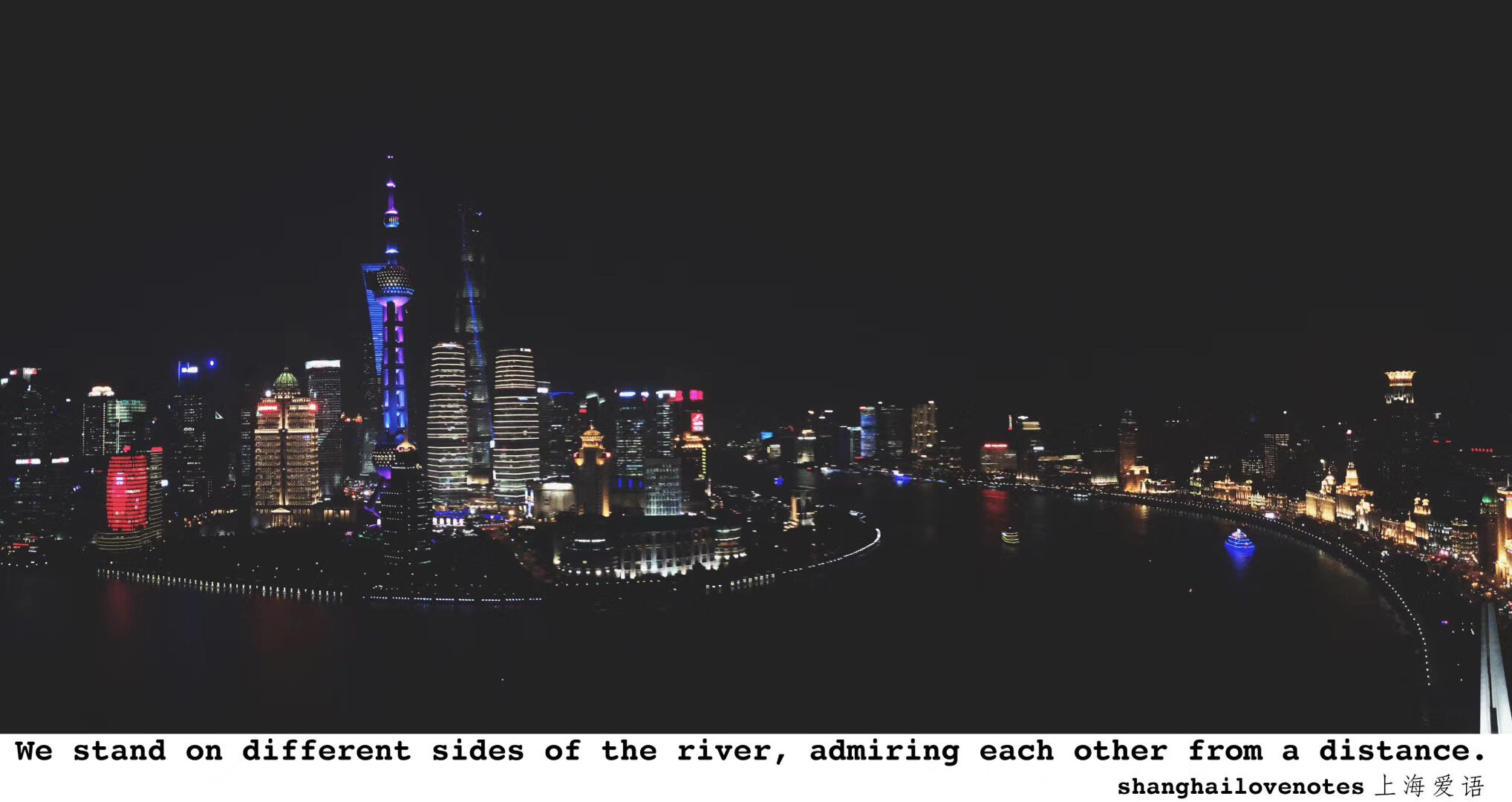Love and Crossover: A Dialogue with Gabby Gabriel
“People can see where you are, but only you know where you are going.” -- Gabby Gabriel
In this interview, Gabby first shares with us her experience as an American living in China. She talks about how her view towards the city of Shanghai has changed over the past eight years and how she began to record her everyday life with her camera and poetry. As an active member and influencer in the Shanghai LGBTQ community, Gabby also provides some valuable insights on the development of the community in both China and the United States. Finally, Gabby shares her motivation for founding a local startup to help foreign companies integrate into the Chinese market and talks about some exciting stories during this process.
Gabby Gabriel is an American “Shanghai expert,” as labeled by the BBC in Reggie in China, the 2019 documentary about contemporary China. Gabby is the only foreigner featured in the three-part documentary, hosted by Reggie Yates. After moving to China in 2012, Gabby has been digging deep into Chinese culture through her popular series, Shanghai Love Notes. Gabby also founded one of China’s most influential LGBTQ organizations, using social media to connect over 30,000 people across China. Gabby founded Gab China to help other companies engage with the Chinese community and build bridges between the east and west. She is also a frequent public speaker; she has given talks for the American Consulate of Shanghai, TEDx Puxi, and the International Professional Women’s Society.
It has been eight years since you first came to China in 2012. What prompted you to make this decision to stay in a foreign country?
At that time, I was engaged to a girl from the UK. Because we were in such a serious relationship, I wanted to work and live in the same country with her. But in America, they didn't have marriage equality on the federal level, so we decided to stay in another country for a year or two until the law changed in the US. I taught at the Northeastern University Writing Center while finishing my senior year, and I happened to meet some teachers who just came back from teaching in China. They told me it was a great experience and highly recommended that I give it a try. As a result, my fiancée and I moved to China.
At first, I didn’t know anything about Asian culture, not to mention anything about China. We basically moved there knowing nothing other than the Great Wall. I lived in Suzhou for the first six months and it was a difficult time. There was only one Western restaurant around, and I had never seen a squatting toilet before in my life. I was given hot water to drink in every season, even during the summer. My first year could be summarized as an experience of all-around discomfort. Now, when I look back, I think it was a normal process to go through, just as it is normal for anyone just starting their life in an unfamiliar environment. It gets better once the adjustment period has passed.
You launched the Shanghai Love Notes project in 2014. How did your impression of the city change in those two years? Can you briefly introduce the project?
I began to embrace the challenge and differences of Shanghai during my second year. I began to find lots of inspiration for the city and really wanted to explore that with a new-found appreciation.
I started taking pictures all around the city. Not with a specific purpose, but following my interests, so that sometimes they were only random scenes of people passing by. I remember one day when I looked out the window of my apartment, which had a great view of Shanghai, I realized I had really fallen in love with the city. So, I wrote a little love note to express my appreciation. I posted the note on my WeChat moments and called it a “Shanghai love note.” I received great feedback from my contacts list, with encouragement to continue writing more, and that’s how it all started.
Now, I have written over 500 Shanghai Love Notes, and they have been featured in a number of media from ThatsShanghai, City Weekend, to NeoCha, and they are also one of the reasons the BBC included me in their documentary about contemporary China, Reggie in China. Shanghai Love Notes usually combines photography and poetry to tell stories of Shanghai in detail and stories of the heart. I hope to expand the series to include other cities in the future.
Based on your living experience in both the United States and China, what do you think are the different attitudes toward the LGBTQ community? Are there any changes in recent years?
The US has come a long way since I left and the LGBTQ community has become much more equal by law. Even the Republicans accept marriage equality in the sense that they are not actively trying to overturn it. The country has evolved a lot and is still on the way to change and reform.
When I first moved to Shanghai, I remember asking straight people about the LGBTQ community and they said there were no gay people. It wasn’t easy to find the community back then. But over the years, the community has developed tremendously. There are bars, activities, and different organizations. It has become more acceptable at least in the social sense. However, I do think it is a struggle for Chinese that have yet to come out, not because of their peers, but more because of their families and the pressure their families put on them.
What are some challenges and memorable experiences in forming Qmmunity, one of the largest and most influential LGBTQ organizations in China?
There was one time when we tried to open a social account but were denied because no LGBTQ related topic was allowed on the platform. There is still definitely some sense of censorship and resistance from the Chinese government about the community. This may result in a lack of information and resources for the LGBTQ community, especially for those that are transgender or gender non-conforming.
Some people say that China is about twenty to thirty years behind in terms of the LGBTQ movement. I think the reality is kind of mixed because you have the modern contemporary generation Z and millennial Shanghai that is much more open-minded and accepting of the LGBTQ community, with some actively engaging in activities. However, the older, more traditional generations are still around influencing society.
Former US Consul General Sean Stein @ Qmmunity 2019 Gala
One of the best moments that I will never forget is when we organized the first International Day Against Homophobia and Transphobia Gala in 2019. It was a huge event with more than 200 participants. The US Consul General Stein was the keynote speaker, and the New Zealand Consul General and Canadian diplomats were in attendance to show support. We tried to find some Chinese government officials to attend because we wanted to bring all the different countries together. But we couldn't find any, maybe because we were in such a hurry—we planned everything in only three months. But the event itself was fantastic. Honestly, it was really one of my favorite nights of my life.
Jose Sia, Head of Political, Economic, and Public Affairs, Consulate General of Canada @ Qmmunity 2019 Gala
Another event was in 2018, where we invited all of the LGBTQ organizations to introduce what they're planning on doing for the community for the year. It was a large and inspiring event as well. All of the popular LGBTQ organizations in Shanghai were there, so it really brought the community together.
Qmmunity China Jan. 2018 LGBTQIA+ Kickoff Event
GAB China is a full-service digital marketing and advertising agency. Can you briefly introduce the goal and mission of the company?
GAB China helps make Chinese marketing for international brands easy. A lot of foreign companies usually want to enter the Chinese market but have found it hard to adapt to the local culture. At first, I tried to make an app for the LGBTQ community, but we couldn't get enough funding for it. The co-founders and I then decided that we could start a marketing agency because we became experts at marketing in China.
It has been very successful. Within two years, we have worked with a variety of clients from different countries: Spain, France, Holland, mostly countries from Europe and the US. GAB China’s mission is to help foreign companies understand local demand and bring them closer to their audience group in China. For example, there are a lot of Chinese fans that are not getting the first-hand experience that they deserve. We bring the Chinese audience and awesome foreign brands closer together.
There is also a lot of fun during the process, such as the Wild China facilities & Huawei's "Seeds of the Future" program that aims to help cultivate young talent around the world. I am one of the speakers that travel virtually with Huawei to over thirty countries, introducing marketing and Chinese culture to their rising talents worldwide.
2020 has been a year of hardships and unexpected changes. Do you have any speculations regarding the disintegrating international relations?
I'm a firm believer that globalism is still present and will become only more important in the future. If there is anything that we have learned from COVID-19 is that we are deeply connected, whether we want to be or not, and there is no way of avoiding it. Therefore, the best thing we can do is learn how to work together effectively despite all of the differences.
The United States and China will never completely separate from each other as we are too integrated to completely “decouple.” In that sense, I'm hopeful that through negotiations, both sides will be able to figure out a path towards a peaceful future for not just both of our countries, but for the world. I'm very confident about that.
To learn more about Gab China, please visit: https://gab-china.com/
To learn more about the Shanghai Love notes, please visit https://www.gabbygabriel.com/love-notes/ and http://neocha.com/magazine/shanghai-love-notes/ or follow the Wechat official account at Shanghai Love Notes.
For more information about Qmmunity, please visit https://www.theqmmunity.com/ or follow the Wechat official account at Qmmunity.
Interviewer: Heidi Yuan
Editor: Emily Zhang


